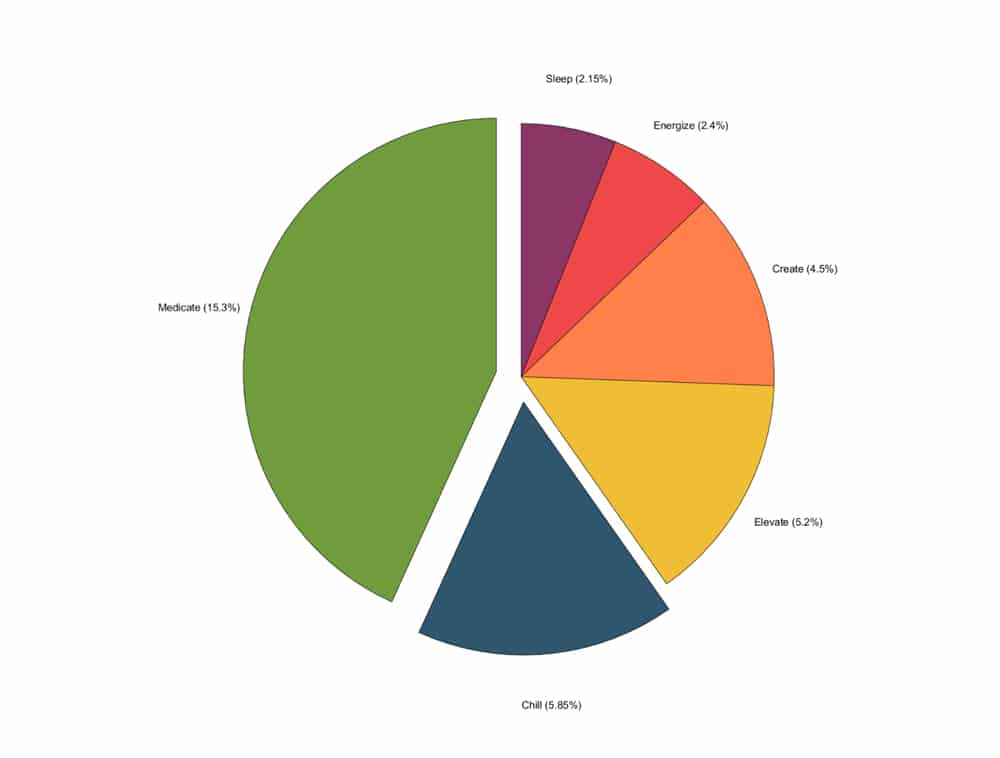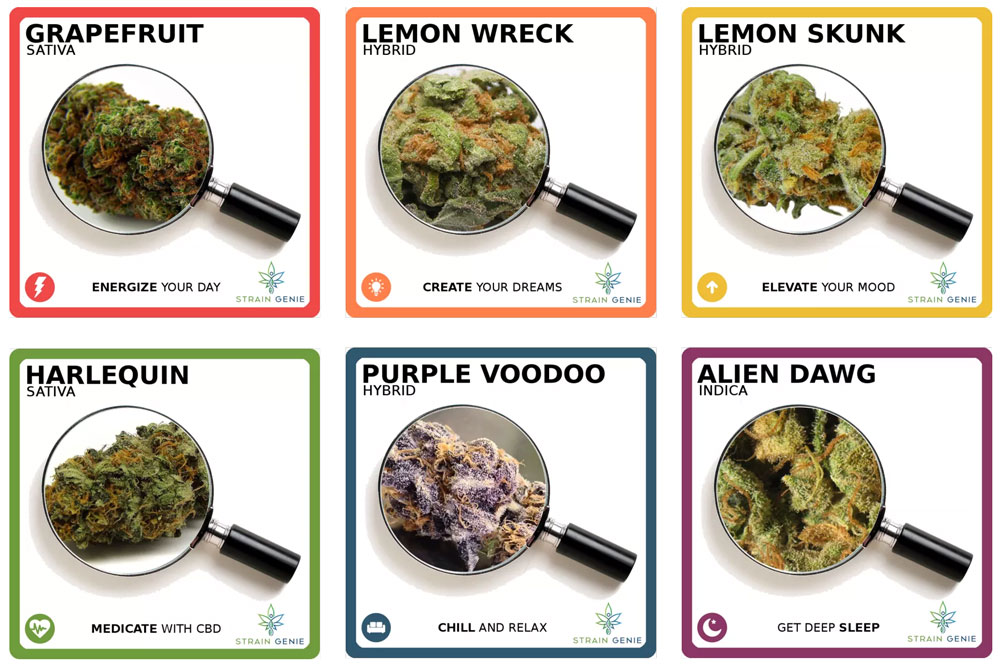Your DNA knows what you should be getting high on

Since the DNA testing craze began, we’ve seen the technology being used in some pretty unexpected places. From testing migrant children who have been separated from their parents at the U.S.-Mexico border and are lost in a chaotic system, to Spotify claiming to enrich your listening experience by tapping into your heritage. In fact, you can now use your DNA home-testing kit results to find the perfect skincare, tailor your diet better, find out which sport your child should take up and even understand what skills you have to help you on ski slopes. But one market that has taken a liking to DNA matching is set to grow exponentially with its new personalised angle: the cannabis industry in the U.S.
Strain Genie is a platform that claims to match your DNA results with the type of weed that’s right for you. It does this by partnering with home-testing kits such as 23AndMe, MyHeritage, Ancestry and FamilyTreeDNA, or if you’re new to the field of DNA testing, you can simply request a Cannabis DNA test kit from the company directly. Whether you upload a .txt file from previous results or spit into a brand new test tube, it takes about 24 hours for Strain Genie to process the DNA information and generate a personalised 19-page cannabis report, just for you.
The ‘Cannabis Health Report’ sets out to identify genetic traits in users, such as an elevated risk of developing Alzheimer’s disease or carrying a genotype that means you have a reduced CBD metabolism. In an example report Strain Genie makes available on its website, it shows that tips inside the report include a personalised recommendation for the ratio of THC and CBD according to each users’ genotype, which means users can begin to customise the products they consume accordingly. For example, a strand of weed that helps to stimulate memory cells will be recommended to those prone to Alzheimer’s.

Following a general introduction to THC, CBD and genes, the Strain Genie report takes its user on a more visual journey into what it has divided into categories of benefits each user can reach with different cannabis products, and which genres they might benefit from the most. From ‘chill’, ‘energise’, and ‘sleep’, to ‘create’ and ‘medicate’, there is a pathway for each and everyone one of us in the magical world of personalised marijuana. According to Strain Genie, that is.

In a recent article on The Hustle, a media company operating inside your email in the form of newsletters, Zachary Crockett explains how Nicco Reggente, co-founder of Strain Genie, first entered the industry with WoahStock four years earlier in a bid to create the ‘Netflix of weed’. The CEO had co-created a platform “that collects data on thousands of marijuana strains, asks users to fill out a medical questionnaire, then enlists an algorithm to ‘intelligently’ recommend the right products for the right people.” Writes Crockett. With a PhD in neuroscience, Reggente told The Hustle that “I thought, maybe I could leverage DNA to gather information about my customers and help them make better purchasing decisions.” So it only makes sense that the next step for Reggente was to enter the DNA realm and elevate the type of personalisation he offers his customers that one step further.

Having anxiety issues? Purple Voodoo is here to chill you out. Writer’s’ block? Fear no more, Lemon Wreck wants to get your creative juices flowing. And when you think about it, matching strands of cannabis to genotype characteristics makes sense; perhaps more sense than matching a new pair of skis to your DNA.
The legalisation and monetisation of the cannabis market is on a mega rise in the U.S. and other countries where it has been legalised, and is expected to reach $146.4 billion by end of 2025, according to a new report by Grand View Research, Inc. So it comes as no surprise that Reggente is on a mission to lead its personalisation aspect with Strain Genie and WoahStock. Sure there are some questions surrounding the validation of DNA testing and how accurate the results really are. But spending your money on making sure you are getting high on the right substance doesn’t seem like a bad place to start.




